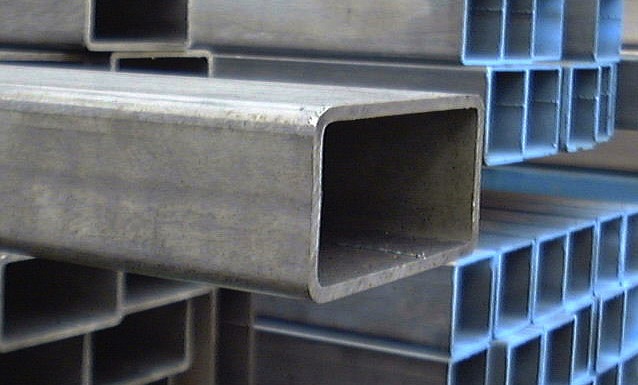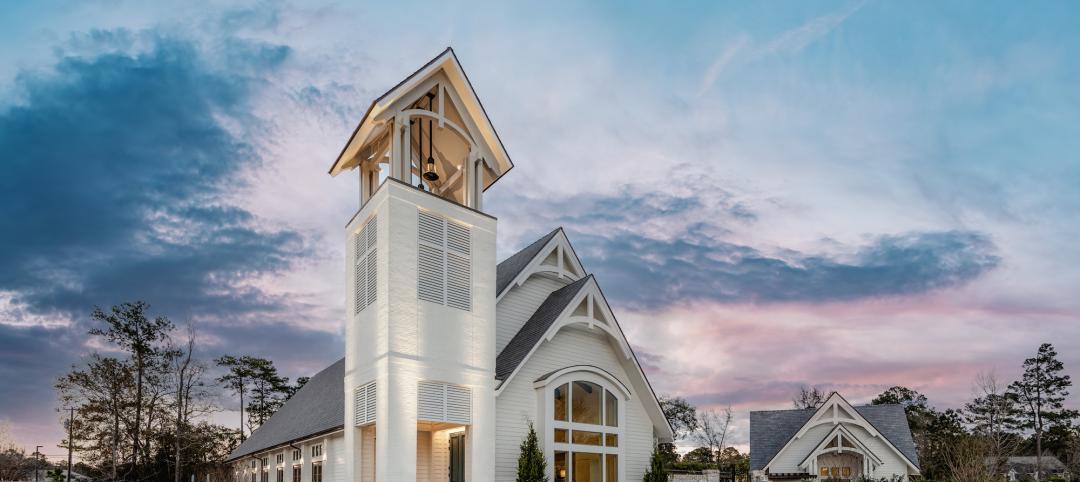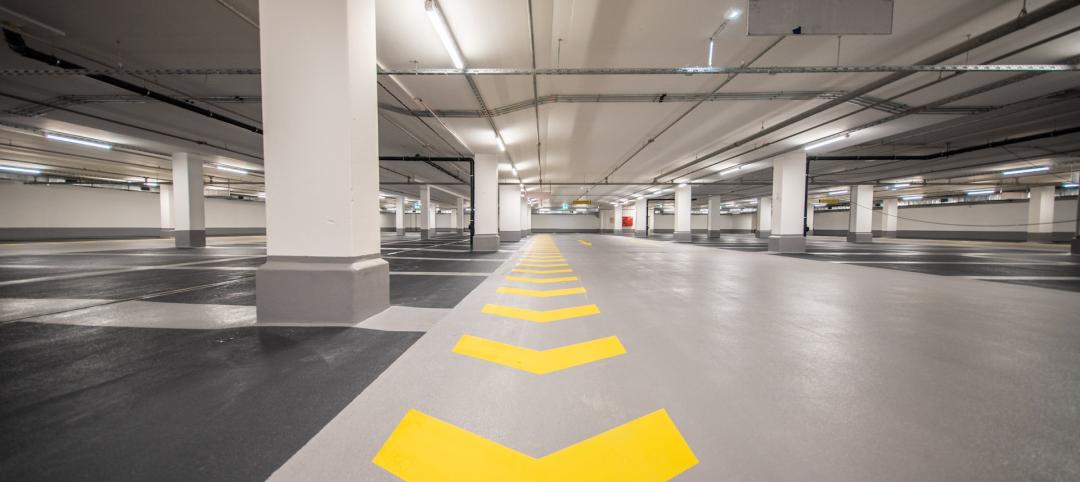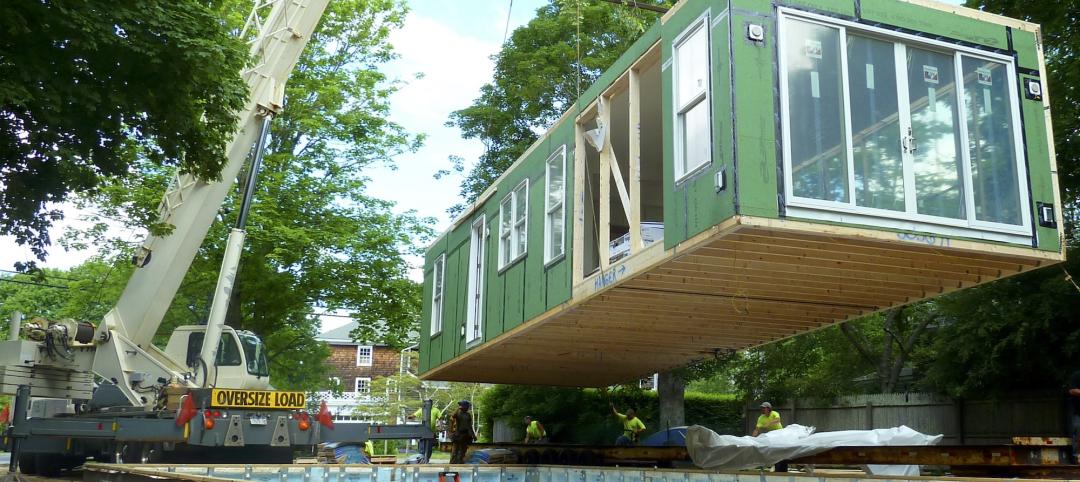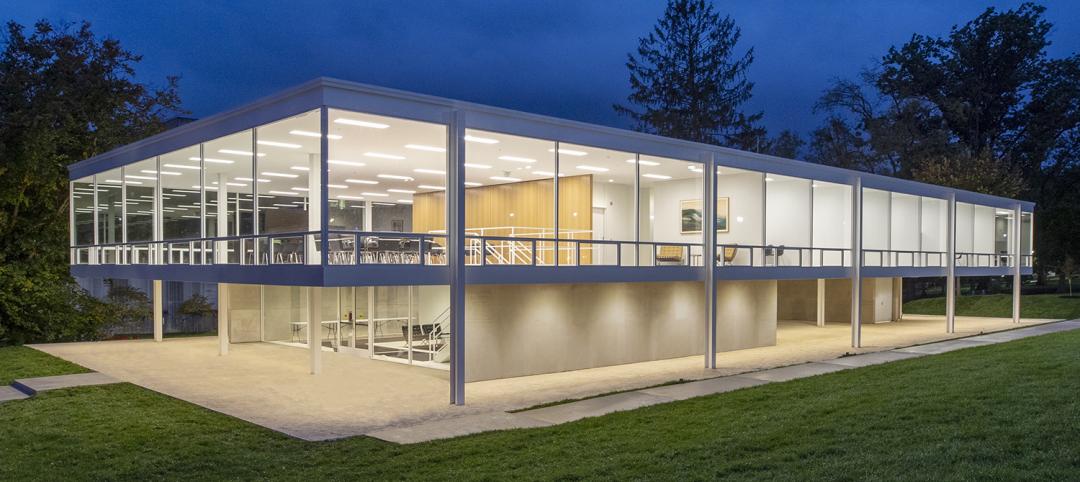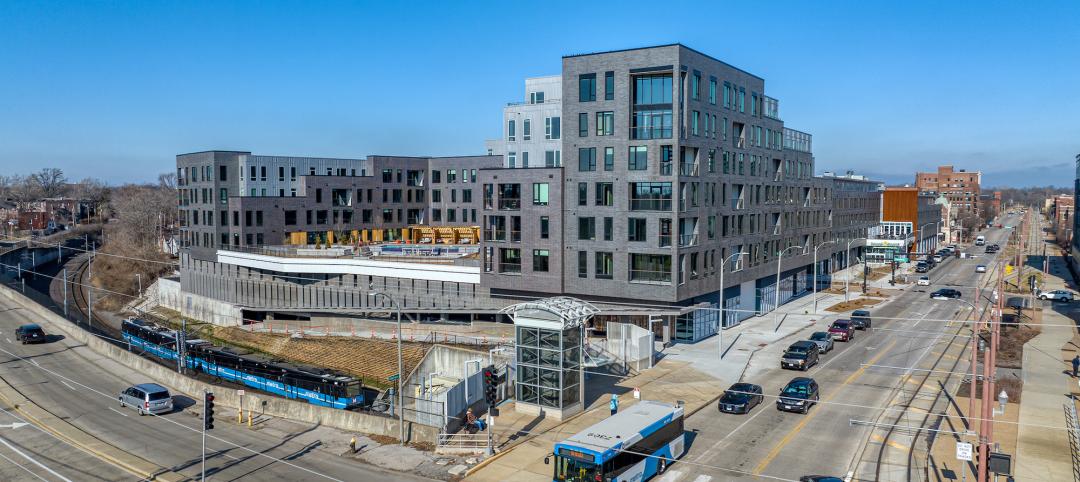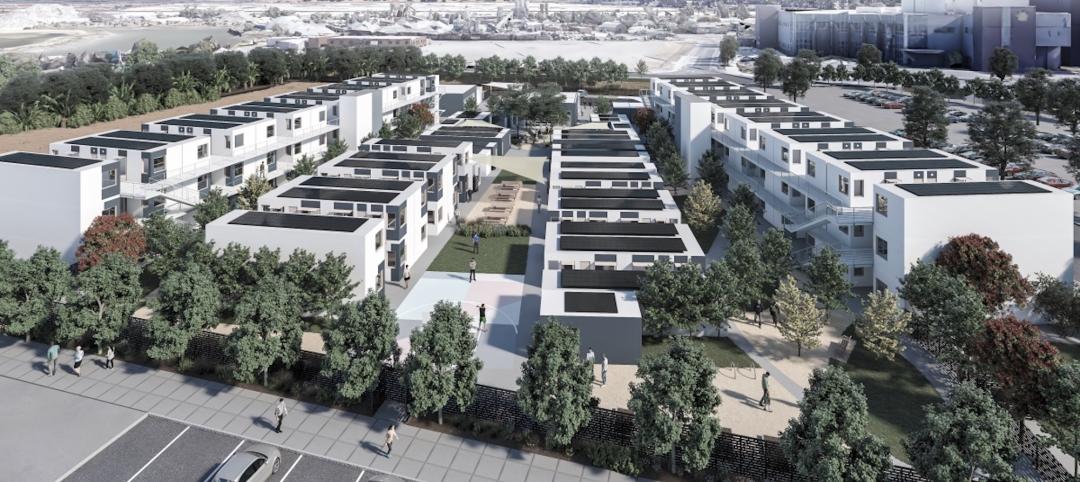ASTM has released a new HSS standard, A1085 - 13 Standard Specification for Cold-Formed Welded Carbon Steel Hollow Structural Sections (HSS), which will result in the production of improved hollow structural sections (HSS). This specification is a big step forward in simplifying HSS design and usage, thereby making it a more desirable option for HSS.
"We were committed to the development of the new ASTM A1085 specification as it was needed to improve the performance of HSS used in structural applications such as seismic load resisting systems, bridge structures and other dynamically loaded structures," said Brad Fletcher, senior sales engineer with AISC-member Atlas Tube. According to Fletcher, round and square members from 6 in. and up will likely be the main shapes Atlas initially produce under the new specification.
Benefits include:
- Tighter material tolerances and a single minimum yield stress of 50 ksi. Because of the more stringent wall tolerances and the addition of a mass tolerance, it's anticipated that AISC's Committee on Specifications will shortly issue guidelines allowing the full nominal wall thickness can be used for design of HSS. This means no longer needing to reduce the nominal wall thickness by 0.93 as prescribed in the AISC Steel Construction Manual for both member selection and connection design. And more area available for design and a higher minimum yield mean that HSS will become a more economical and efficient design option.
- Maximum specified yield stress of 70 ksi. This will result in a lower expected yield strength for seismic design, and thereby reduce capacity design requirements when HSS are the yielding element. For example, with ASTM A1085 HSS braces in a braced frame, the beams and columns will have lower required strengths. ASTM A1085 is the only HSS specification used in North America or Europe that limits the maximum yield stress.
- Standard requirement for notch toughness. The specification will require all HSS to meet a minimum Charpy V-notch (CVN) value of 25 ft-lb at 40°F, which corresponds to AASHTO Zone 2 requirements. Having the minimum CVN required makes HSS more suitable for use in dynamically loaded structures.
"A1085 makes designing with HSS easier and more efficient for both building and bridge construction," said John Simon, vice president of sales with AISC-member EXLTUBE. "We are hearing a great response from structural engineers who have begun to learn about this new spec through efforts at NASCC: The Steel Conference and other communications, and we're working closely with AISC and the Steel Tube Institute to begin promoting A1085 to our customers. EXLTUBE will be supporting these efforts with inventory as soon as we've determined the sizes the market will require from us."
John Tassone, marketing manager for AISC-member Independence Tube, also commented: "We will be manufacturing and inventorying the product as the need arises," adding that the company will likely concentrate on squares and rounds 4 in. and above to start.
For specific price and availability information, please contact HSS producers and service centers. Contact information is available at www.aisc.org/hss.
About the American Institute of Steel Construction
The American Institute of Steel Construction, headquartered in Chicago, is a not-for-profit technical institute and trade association established in 1921 to serve the structural steel design community and construction industry. AISC's mission is to make structural steel the material of choice by being the leader in structural steel-related technical and market-building activities, including: specification and code development, research, education, technical assistance, quality certification, standardization, and market development. AISC has a long tradition of service to the steel construction industry of providing timely and reliable information.
Related Stories
Giants 400 | Feb 6, 2023
2022 Religious Sector Giants: Top architecture, engineering, and construction firms in the U.S. religious facility construction sector
HOK, Parkhill, KPFF, Shawmut Design and Construction, and Wiss, Janney, Elstner head BD+C's rankings of the nation's largest religious facility sector architecture, engineering, and construction firms, as reported in the 2022 Giants 400 Report.
Giants 400 | Feb 6, 2023
2022 Justice Facility Sector Giants: Top architecture, engineering, and construction firms in the U.S. justice facility/public safety sector
Stantec, DLR Group, Turner Construction, STO Building Group, AECOM, and Dewberry top BD+C's rankings of the nation's largest architecture, engineering, and construction firms for justice facility/public safety buildings work, including correctional facilities, fire stations, jails, police stations, and prisons, as reported in the 2022 Giants 400 Report.
Giants 400 | Feb 6, 2023
2022 Parking Structure Giants: Top architecture, engineering, and construction firms in the U.S. parking structure sector
Choate Parking Consultants, Walker Consultants, Kimley-Horn, PCL, and Balfour Beatty top BD+C's rankings of the nation's largest parking structure sector architecture, engineering, and construction firms, as reported in the 2022 Giants 400 Report.
Market Data | Feb 6, 2023
Nonresidential construction spending dips 0.5% in December 2022
National nonresidential construction spending decreased by 0.5% in December, according to an Associated Builders and Contractors analysis of data published today by the U.S. Census Bureau. On a seasonally adjusted annualized basis, nonresidential spending totaled $943.5 billion for the month.
Giants 400 | Feb 3, 2023
Top Workplace/Interior Fitout Architecture, Engineering, and Construction Firms for 2022
Gensler, Interior Architects, AECOM, STO Building Group, and CBRE top the ranking of the nation's largest workplace/interior fitout architecture, engineering, and construction firms, as reported in Building Design+Construction's 2022 Giants 400 Report.
Multifamily Housing | Feb 3, 2023
HUD unveils report to help multifamily housing developers overcome barriers to offsite construction
The U.S. Department of Housing and Urban Development, in partnership with the National Institute of Building Sciences and MOD X, has released the Offsite Construction for Housing: Research Roadmap, a strategic report that presents the key knowledge gaps and research needs to overcome the barriers and challenges to offsite construction.
Steel Buildings | Feb 3, 2023
Top 10 structural steel building projects for 2023
A Mies van der Rohe-designed art and architecture school at Indiana University and Morphosis Architects' Orange County Museum of Art in Costa Mesa, Calif., are among 10 projects to win IDEAS² Awards from the American Institute of Steel Construction.
Multifamily Housing | Feb 2, 2023
St. Louis’s first transit-oriented multifamily development opens in historic Skinker DeBaliviere neighborhood
St. Louis’s first major transit-oriented, multi-family development recently opened with 287 apartments available for rent. The $71 million Expo at Forest Park project includes a network of pathways to accommodate many modes of transportation including ride share, the region’s Metro Transit system, a trolley line, pedestrian traffic, automobiles, and bike traffic on the 7-mile St. Vincent Greenway Trail.
Giants 400 | Feb 2, 2023
2022 Convention Center Sector Giants: Top architecture, engineering, and construction firms in the U.S. convention and conference facilities sector
Clark Group, EUA, KPFF, Populous, TVS, and Walter P Moore top BD+C's rankings of the nation's largest convention and conference facilities architecture, engineering, and construction firms, as reported in the 2022 Giants 400 Report.
Multifamily Housing | Feb 1, 2023
Step(1) housing: A new approach to sheltering unhoused people in Redwood City, Calif.
A novel solution to homelessness will open soon in Redwood City, Calif. The compact residential campus employs modular units to create individual sleeping units, most with private bathrooms. The 240 units of housing will be accompanied by shared services and community spaces. Instead of the congregate dorm-style shelters found in many U.S. cities, this approach gives each resident a private, lockable, conditioned sleeping space.


